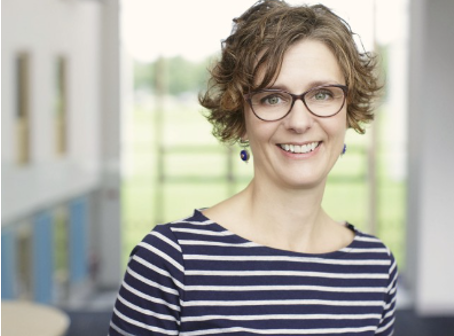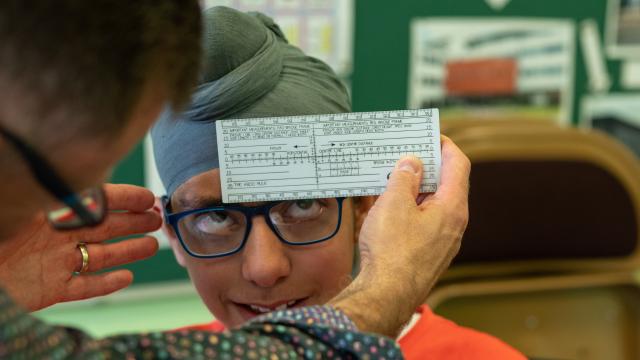Why eye care for all special schools is evidence based and equitable
The government backs the Special Schools Eye Care Service!
In June 2023 we were delighted to receive confirmation from the government that NHS sight tests will be on offer to all pupils in special schools from 2024/2025. As the article below was written when the service was in jeopardy, it may now contain some out of date information relating to future provision. Thank you to everyone who has supported the campaign, written blogs and stood firm about the benefits of the service.
Over 9000 children are now able to access sight tests and glasses in their special school. But how did the NHS Service come about? What was the evidence base? Professor Kathyrn Saunders, was part of the NHS working group on behalf of the College of Optometrists. As a leading subject matter expert on paediatric eye care at Ulster University she provides the context for working in all special schools, and shares her dismay that the future of the Service is uncertain.
 Vision is central to a child’s development and is continuously developing as they grow up. I am particularly passionate about improving eye care for children with special educational needs. We know at least half of children with a learning disability have a problem with their eyesight, but those issues can be easily overlooked, even leading to permanent sight loss if not addressed.
Vision is central to a child’s development and is continuously developing as they grow up. I am particularly passionate about improving eye care for children with special educational needs. We know at least half of children with a learning disability have a problem with their eyesight, but those issues can be easily overlooked, even leading to permanent sight loss if not addressed.
When a child has an additional learning disability, finding creative ways to assess their vision but also to recognise and manage those vision needs is crucial. It’s estimated 80% of learning relates to our vision, but our research at Ulster University has found very few special education plans contain useful information on vision needs.
Special schools eye care is backed not just by patient, clinical and public support, but years of research and evidence building. Studies across the UK that have identified, consistently, that half of children attending special schools have a sight problem, and that many have never had any eye care before because of the challenges they face. It is relevant that this evidence all comes from studies in day special schools.
In 2016 I was pleased to be involved in publishing the Framework for provision of eye care in special schools endorsed by the four eye care professional bodies representing clinicians delivering eye care, including the College of Optometrists. The Framework is the evidence-based rationale and clinical specification for special schools eye care which includes sight testing, glasses dispensing and crucial ongoing support to wear glasses, as well as a user-friendly report of advice for parents and schools. No distinction was made in the Framework between types of special school - recognising that children with complex and high support needs attend both day and residential special schools.
My research team also put the special schools framework into practice. In 2019 “the SEE project” tested the educational and behavioural benefits of this eye care model in a day special school in Northern Ireland. The published results showed the value of the model and importantly demonstrated that having their vision needs supported resulted in measurable impact on children’s attention and behaviour. Crucial was the ability of the in-school service to support glasses wear longer term, and the benefits of information exchange with parents, teachers and eye care teams regarding adjustments that could be made in school to improve children’s access to education.
The clinical framework was endorsed by Public Health England, and then NHS England, who invited people with lived experience and myself and other clinical experts, to design a service specification, competency framework, and commissioning standard that would enable the launch of the NHS Special Schools Eye Care Service in April 2021.
I’m dismayed as to why NHS England now only wants to talk about a service in residential special schools: its inequitable and it is not evidence-led. But most of all it is hugely unambitious - eye care for people with learning disabilities needs addressing on a much wider scale and the working group were there to help NHS England ‘move on’ to that challenge (or so we thought) once the schools work was off the ground.
While it seems we must now wait for an evaluation, it is vital that NHS England acknowledges the history of this work and publishes the data so far. For researchers like me this will be the biggest dataset of its kind, ripe for analysis, and I have no doubt that it will confirm how needed the service is in all special schools.”


